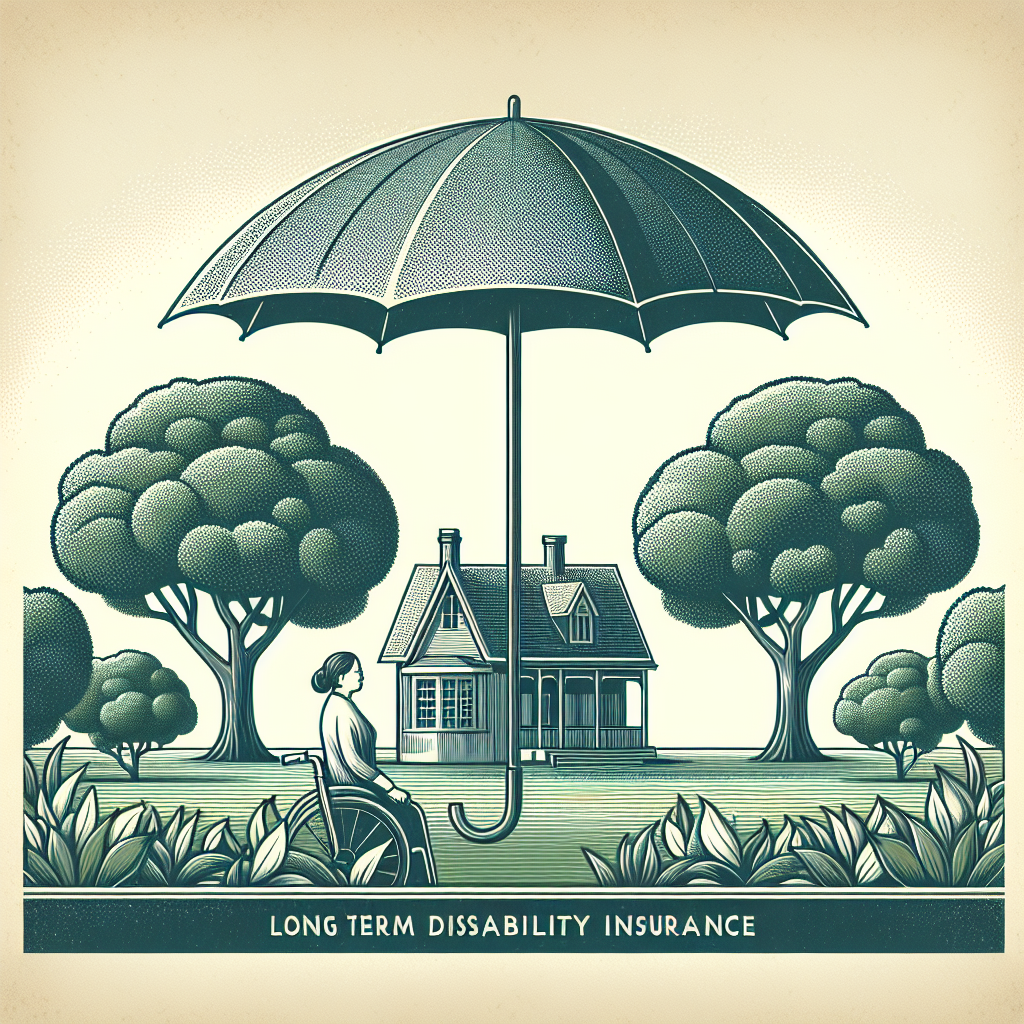Filed under Disability Insurance on
Comparing Long Term Care and Disability Insurance

When it comes to safeguarding your future, understanding the nuances of insurance options becomes vital. Insurance not only provides financial protection but also peace of mind. Among the plethora of insurance choices, long term care and disability insurance stand out. While both serve to protect against life’s uncertainties, they cater to different aspects of risk. This article will delve into the intricacies of both long term care and disability insurance, helping you make informed decisions.
Understanding Long Term Care Insurance
Long term care insurance is designed to cover services that assist with activities of daily living (ADLs) for individuals who need ongoing care due to chronic illness, disabilities, or other conditions. These services can range from in-home care to nursing home expenses, offering a safety net when personal health deteriorates over time.
Key Features of Long Term Care Insurance
- Coverage Options: Policies typically offer a variety of coverage options, including home care, assisted living, and nursing home care.
- Benefit Period: Policyholders can choose the length of the benefits period, which usually spans from two to five years or even for a lifetime.
- Elimination Period: The waiting period before benefits become payable, often ranging from 0 to 90 days, is an important consideration.
Who Needs Long Term Care Insurance?
As people age, the likelihood of needing assistance with daily activities increases. Long term care insurance is particularly beneficial for those who wish to protect their savings and enable quality care in their later years. It's often recommended for individuals who have reached their 50s or 60s and want to plan for future contingencies.
Understanding Disability Insurance
Disability insurance is aimed at replacing a portion of your income if an illness or injury prevents you from working. It ensures that you can maintain your standard of living, pay bills, and manage financial responsibilities, even if you're unable to perform your job duties temporarily or permanently.
Key Features of Disability Insurance
- Short-Term vs. Long-Term Disability: Short-term policies cover disabilities that last for a few weeks to a year, while long-term policies provide benefits for extended periods, potentially until retirement age.
- Income Replacement: Most policies cover between 50% to 70% of your gross income.
- Non-cancelable Policies: Some policies guarantee coverage cannot be canceled or rates increased, providing peace of mind.
Who Needs Disability Insurance?
Disability insurance is crucial for anyone who relies on their income for financial stability. This includes both full-time employees and self-employed individuals. Young professionals, in particular, need to consider disability insurance as they have many working years ahead and are likely to be more impacted by a sudden income loss.
Comparing Long Term Care and Disability Insurance
Coverage Scope
While both long term care and disability insurance offer coverage during challenging times, their focuses differ. Long term care insurance primarily covers the cost of care services, assisting with ADLs. In contrast, disability insurance replaces lost income due to the inability to work.
Beneficiary Needs
Long term care insurance caters to those anticipating a need for personal care due to aging or chronic illness. On the other hand, disability insurance addresses the risk of temporary or permanent loss of income due to unforeseen injuries or illnesses, thus serving the income protection needs of working individuals.
Financial Planning Perspective
Both forms of insurance are integral to comprehensive financial planning. Long term care insurance protects your assets from being depleted by care expenses, while disability insurance secures your earning potential. Understanding these distinctions aids in crafting a robust financial safety net tailored to individual circumstances.
Industry Trends and Expert Insights
Recent trends in the insurance industry reflect a growing awareness of both long term care and disability insurance. An aging population and increased healthcare costs have spotlighted the importance of long term care insurance. Simultaneously, the unpredictability of life events has heightened the need for disability insurance. Experts advocate for early policy adoption, emphasizing that premiums and eligibility are more favorable when policies are purchased at a younger age.
Financial advisors often recommend that individuals integrate both policies into their financial planning. By addressing potential long-term care needs and income protection concurrently, individuals can enjoy a more comprehensive safety net, ensuring financial stability across life's various stages.
Deciding Between Long Term Care and Disability Insurance
When choosing between long term care and disability insurance, consider your current life stage, professional status, health, and financial goals. If you're approaching retirement, long term care insurance might take precedence. If you're early in your career with dependents, then disability insurance could be more critical.
Customizing Insurance Plans
It's also possible to tailor your insurance approach by combining both policies. While long term care insurance covers future care expenses, disability insurance ensures current income security. This combination can provide comprehensive coverage, addressing both immediate and long-term needs.
Final Thoughts
Ultimately, both long term care and disability insurance play vital roles in a well-rounded insurance strategy. By understanding the specific benefits and limitations of each, you can make informed decisions that align with your lifestyle, current conditions, and future aspirations all while optimizing for both short and long-term security. Engaging with a sound financial advisor can further assist in curating an insurance portfolio that protects against life’s uncertainties, empowering you to live with confidence and assurance.
In conclusion, while the decision between long term care and disability insurance depends on individual needs and circumstances, investing in these types of coverage offers invaluable peace of mind and financial security. Prioritize early planning and informed choices to ensure a stable financial future no matter what life throws your way.





